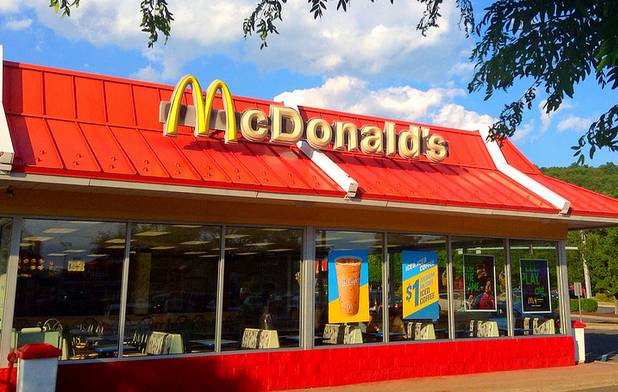Forcing McDonald’s Workers To Accept Wages On Debit Cards Not Okay In PA, Says Judge
See, Section 3 of the Pennsylvania Wage Payment and Collection Law [PDF] currently states that not only are employees to be paid their wages on a regular basis, but that “The wages shall be paid in lawful money of the United States or check.”
The 2013 complaint [PDF] alleges that the McDonald’s franchisee violated this law by requiring that employees accept the Chase debit card, which charged fees like a $1.50 for using an ATM, $5 for over-the-counter cash withdrawals, $1 per balance inquiry, and $.75 for online bill payment.
At the same time, managers at these McDonald’s were being paid through direct deposit, meaning they were not stuck with any of these fees.
The court granted the lawsuit class action status in mid-May and now represents nearly 2,400 current and former McDonald’s workers in the state.
The franchisee sought a summary judgement from the court, claiming the lawsuit should be dismissed because the Chase Payroll cards were the “functional equivalent” of a paycheck.
But last Friday the judge ruled against that motion, saying that the cards are neither cash nor check.
At the same time, he acknowledged that “reasonable minds can differ, particularly where considerations of advancing technology and consumer convenience, as well as the competing consideration of consumer protection are all involved,” and so gave the franchisee the option to file an immediate appeal.
In his order, the judge notes that this is an in-development issue in this country, with around half of the states allowing wage payments on debit cards and at least one under-consideration Pennsylvania law that could clarify if and when they could be legally used in the state.
But even if every state eventually allows employers to use prepaid debit cards for workers’ wages, Federal Reserve Regulation E states that “No financial institution or other person may require a consumer to establish an account for receipt of electronic fund transfers with a particular institution as a condition of employment or receipt of a government benefit,” which the Consumer Financial Protection Bureau has clarified to mean:
“An employer… may not require its employees to receive their salary by direct deposit to any particular institution. An employer may require direct deposit of salary by electronic means if employees are allowed to choose the institution that will receive the direct deposit. Alternatively, an employer may give employees the choice of having their salary deposited at a particular institution (designated by the employer) or receiving their salary by another means, such as by check or cash.”
Luzerne County judge: Payroll cards not legal tender in Pennsylvania (TimesLeader.com)
Judge: McDonalds franchise owners violated state law with debit cards (TheTimes-Tribune.com)
Want more consumer news? Visit our parent organization, Consumer Reports, for the latest on scams, recalls, and other consumer issues.


